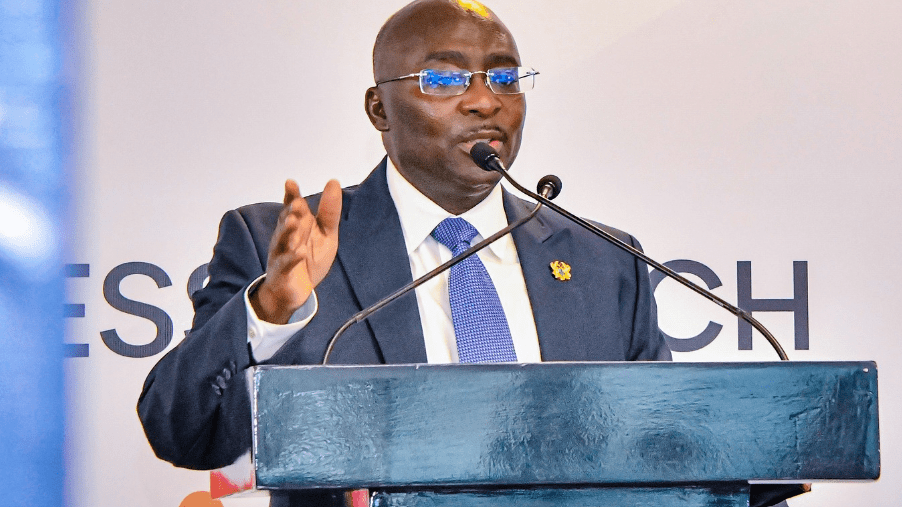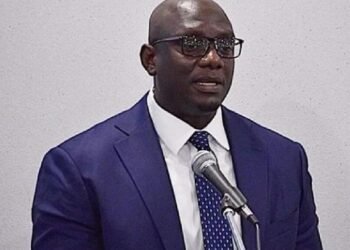Dr. Justice Srem Sai, a law lecturer at the University of Ghana School of Law, has expressed that Dr. Mahamudu Bawumia’s suggestion to re-criminalize the refusal to attend a chief’s summons is legally problematic.
He pointed out that a provision is deemed unconstitutional if it violates a constitutional principle, thereby suggesting that the proposal in question is unconstitutional as the constitution has ruled against criminalizing the refusal to attend a chief’s summons.
Dr. Srem Sai highlighted that a declaration of unconstitutionality by the Supreme Court renders the provision in question null and void, effectively erasing it from existence, as if it had never been part of the legal framework.
“The second point: when a thing is declared unconstitutional, not even Parliament could, through an ordinary legislation, bring such a thing back to life. The reason: Parliament and its laws, too, are under the Constitution. The ways to bring such a thing back to life is to amend the Constitution itself or overthrow it”.
Dr. Justice Srem Sa
Furthermore, Dr. Srem Sai pointed out that the Supreme Court had previously struck down Section 63(d) of the Chieftaincy Act as unconstitutional, in a landmark ruling delivered in July 2011.
He clarified that the now-unconstitutional Section 63(d) had previously made it a criminal offense to ignore a chief’s summons, with the penalty being imprisonment for those who refused to comply.
He highlighted the unexpected twist that a former Paramount Chief, uniquely positioned to understand the provision’s implications, was the one who spearheaded the effort to have it declared unconstitutional, filing a petition with the Supreme Court.
Justice Srem Sai quoted the Supreme Court’s ruling, which stated that “chieftaincy is … a part of the contemporary constitutional regime and its incidents must measure up to the standards set in the Constitution.”
He elaborated that the Supreme Court’s decision indicates that Section 63(d) does not pass constitutional muster, as it does not conform to the required standards of legality and justice.
Constitution Trumps Recriminalization Bid
Moreover, Dr. Justice Srem Sai added that Supreme Court’s decision also renders any potential amendments to Section 63(d) or new laws aimed at re-criminalizing the refusal to attend a chief’s summons null and void, as they would be inconsistent with the Constitution.

“So, I think, Dr. Bawumia’s proposal is, to the extent that it does not call for an amendment of the Constitution or its overthrow, legally disturbed. Inherently”.
Dr. Justice Srem Sa
However, Dr. Srem Sai noted that the Vice President might still consider proposing a constitutional amendment or legislation to criminalize the refusal to attend a summons from any of the over 1000 chiefs in the country, effectively making it a criminal offense if it interest him (Dr. Bawumia).
He expressed puzzlement over why any leader in today’s Ghana, grappling with a multitude of serious challenges, would deem it prudent to invest time and resources into amending a provision solely to re-criminalize the failure to respond to a chief’s summons.
Dr. Srem Sai suggested that such a move would appear to be out of touch with the country’s pressing priorities, seemingly detached from the urgent needs and concerns of the nation.
Meanwhile, on his recent campaign trail, Dr. Mahamudu Bawumia, the flagbearer of the New Patriotic Party (NPP), promised to amend the Chieftaincy Act to grant chiefs the authority to effectively enforce discipline and maintain order in their respective domains.
Dr. Bawumia argued that the curtailed powers of chiefs, particularly their limited ability to summon individuals to the palace, have contributed to a decline in discipline and social order in many communities, and proposed enhancing their authority to address this challenge.
READ ALSO: Celine Dion Vows to Return to Stage Despite Battling Rare Disorder























